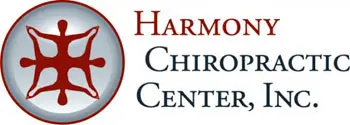What Conditions Can Chiropractors Treat?
Chiropractic physicians are “authorized to examine, diagnose, and assume responsibility for the care of patients” according to Ohio state law. Doctors of chiropractic treat conditions without using prescription medication or surgery, but may advise patients concerning over-the-counter medications.
Chiropractors in the state of Ohio do not treat infectious and contagious diseases, but treatments may help related conditions like upper back pain from coughing.
Remember that chiropractors do not use chiropractic adjustments alone but can use a combination of spinal and extremity adjustments, rehabilitation, soft tissue techniques, nutrition and supplementation in order to treat conditions that present in their offices. In order to properly diagnose the patient, chiropractic physicians have to ability to order laboratory testing (to include hormonal and allergy testing) and diagnostic imaging (including x-rays, CT scans and MRIs).
Specially trained chiropractic physicians have the ability to perform advanced electrodiagnostic testing like electromyography (EMG) and nerve conduction studies. Chiropractic physicians refer to other healthcare providers when appropriate.
Below is a list of conditions that may benefit from chiropractic care and the other services provided in our office.
This list is not to be considered comprehensive but it gives an idea of what chiropractors can treat in their offices. Chiropractors that have advanced training or certification will be better suited to treat certain conditions, like sports injuries or neurological conditions, if they have specialties in sports medicine or functional neurology.

Spinal Conditions
- Low Back Pain
- Upper Back Pain
- Neck Pain
- Arthritis
- Migraine Headaches
- Tension Headaches
- Cervicogenic Headache
- Runner’s Headaches
- Other Types of Headaches
- Herniated Discs
- Pinched Nerves
- Sciatica
- Cervical or Lumbar Radiculopathy
- Facet Syndrome
- Scoliosis
- Sacroiliac Joint Dysfunction
- Piriformis Syndrome
- Whiplash
- Low back pain due to pregnancy
Lower Extremity Conditions
- Hip Pain
- Hip Impingement (Femoroacetabular Impingement)
- Hip pain due to pregnancy
- Hamstring Injuries (Pulled Hamstring)
- Groin Strain
- Gluteal Amnesia
- Patellofemoral Tracking Disorder
- Chondromalacia Patellae
- Patellar Tendinitis (Knee Pain)
- Knee Pain
- Runner’s Knee
- Iliotibial Band Syndrome
- Shin Splints
- Tibialis Posterior Tendinitis
- Calf Strain
- Achilles Tendinitis (Heel Pain)
- Plantar Fasciitis (Heel Pain)
- Metatarsalgia
- Morton’s Neuroma
- Bunion
- Flatfeet
- Lower Cross Syndrome
- Ankle and Leg Sprains
- Frequent ankle sprains
- Foot pain due to pregnancy
- Compartment Syndrome
- Foot Pain (Metatarsalgia, Hallux Rigidus, Morton’s Neuroma, etc.)
- Temporomandibular Joint Disorders (TMJ)
- Abnormal shoe wear (e.g., one side of the sole of the shoe wears out faster than the other)
- Gait abnormalities (e.g., feet point inward or excessively outward during walking) vs. Normal
- Energy Leaks
Other Conditions
- Workplace Injuries
- Car Crash Injuries
- Auto Accident Injuries
- Post-Surgical and Traumatic Scars
- Surgical Pain Syndromes
- Myofascial Pain and Restrictions
- Arthritis
- Women’s Health – Post-Mastectomy / Caesarean Scarring
- Chronic and Acute Sprains/Strains
- Reduced ROM Due to Scar Tissue
- Temporomandibular Joint Disease (Jaw Pain)
- Tendonitis
- Poor Posture (Tips for Good Posture)
- Injury Prevention for Runners
Traumatic Conditions
- Sports Injuries
- Strains & Sprains
- Traumatic Brain Injuries
- Whiplash
- Motor Vehicle Collisions
- Work-related Injuries
- Repetitive Motion Injuries
- Spinal Disc Injuries
Upper Extremity Conditions
- Rotator Cuff Syndrome (shoulder pain)
- Frozen Shoulder
- Medial Epicondylitis (Golfer’s Elbow)
- Lateral Epicondylitis (Tennis Elbow)
- Carpal Tunnel Syndrome (Wrist/Hand Pain)
- DeQuervain’s Syndrome
- Wrist Tendinitis
- Trigger Finger
Neurological Conditions
(Treated by Board-Certified Chiropractic Neurologist)
- Head Injuries/Traumatic Brain Injuries
- Concussions
- Post-Concussion Syndrome
- Headaches
- Migraines
- Vertigo / Dizziness / Motion Sickness
- Movement Disorders
- Parkinson’s
- Tourette’s Syndrome
- Cervical Dystonia
- Torticollis
- Writer’s Cramp
- Neurobehavior Disorders of Childhood
- Attention Deficit Hyperactivity Disorder (ADHD)
- Autism Spectrum Disorder
- Pain Syndromes
- Numbness and Tingling
- Dyslexia
- Complex Regional Pain Syndrome
- RSD (Reflex Sympathetic Dystrophy)
- Fibromyalgia
- Pinched nerves
- Peripheral Neuropathies
- Carpal Tunnel Syndrome
- Ulnar Neuropathy
- Radial Neuropathy
- Fibular Neuropathy
- Tarsal Tunnel Syndrome
- Cervical or Lumbar Radiculopathy
- Stroke Rehabilitation
*** Many conditions in this Neurological Condition list need specialized training for effective diagnosis or treatment beyond typical chiropractic care. Depending on the condition listed, management might be the goal.
Nutritional Issues
- Optimum Nutrition for Runners
- Performance vs Weight-Loss Nutrition in Runners
- Vitamin Deficiencies
- Osteoporosis/Osteopenia
- Poor Nutrition

